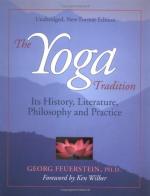|
This section contains 5,473 words (approx. 19 pages at 300 words per page) |

|
SOURCE: “Victorian Lucretius: Tennyson and the Problem of Scientific Romanticism,” in Writing and Victorianism, edited by J. B. Bullen, Longman, 1997, pp. 104-19.
In the following essay, O'Neill offers an analysis of Tennyson's poetry, explaining that his synthesis of the romantic and scientific helped define the Victorian response to the muddied waters stirred by scientific discovery.
One of the most important influences of the Romantic movement in literature was its belief in the authority of nature over social conventions. Guiding and mediating individual thoughts and feelings, the processes and objects of nature inspired poets such as Wordsworth, Keats and Shelley with an organic sense of the unity of being. In contrast to the oppressive forms of an increasingly industrial society, nature represented a moral if not physical sanctuary for self-expression and imaginative invention. But the seemingly transcendental power of nature in Romantic poetry was undermined by the new and...
|
This section contains 5,473 words (approx. 19 pages at 300 words per page) |

|


